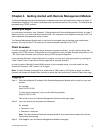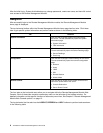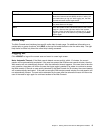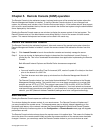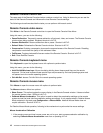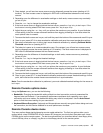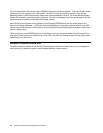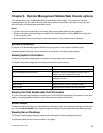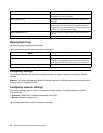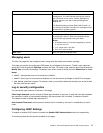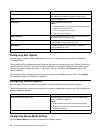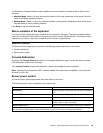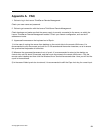
The virtual devices act just like any other CDROM or oppy on the remote system. They can be read, written
(assuming they are not read-only), and booted. The pair of virtual devices only appear on the remote
operating system or BIOS setup menus when some media redirection is active. The virtual devices persist
across remote system resets and power up/downs. They do not disappear from the remote system until the
checkboxes are unchecked in the Remote Console window.
Note that the virtual devices are not limited to normal oppy/CDROM sizes and will be as large as the
device or le being redirected. A USB Key drive is redirected as a virtual oppy device rather than a USB
device to allow the loading of custom device drivers during remote operating system installation which may
require a oppy drive.
There is only one virtual CDROM and one virtual oppy device on the remote system allowed so only one
local item of each type can be redirected at a time. Only one Remote Console window can be doing media
redirection at any given time.
Remote Console status line
The status line at the bottom of the Remote Console screen shows the console state. As you navigate the
menu options, the status line gives a more detailed denition of each option.
14 ThinkServer TD230 Remote Management User Guide




